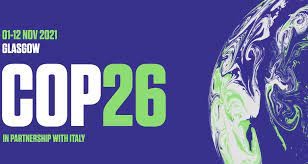Description

Copyright infringement is not intended
Context: India’s big push at the COP26 will be to have more countries commit to a “net zero” deadline by mid-century.
Story so far:
- Ahead of the 26th meeting of the Conference of Parties (COP) next month in Glasgow, there have been several bilateral meetings between India and other countries including the U.S. and the European Union.
- The big push at the COP will be to have more countries commit to a “net zero” deadline by mid-century.
- This would mean ensuring that a country’s emissions are balanced out by absorbing an equivalent amount either by carbon sinks (such as forests) or carbon capture and storage
- India, the world’s third largest emitter, hasn’t agreed to a net zero deadline.
Why hasn't India agreed to a net zero target?
- India sees a mid-century target upon itself as opposed to the principle of “common but differentiated” responsibility that allows countries to eschew fossil fuel without compromising equitable development.
- Net zero means that a country must commit to a year beyond which its emissions won’t peak and a point at which it will balance out its emissions by taking out an equivalent amount of greenhouse gas from the air.
- Even theoretically committing to a net zero by 2050 would require India to retire its coal plants and fossil fuel use overnight and even this wouldn’t guarantee that temperature-rise stays below 1.5C by the end of the century.
- India avers, most of the countries clamouring for a net zero target for India will continue — even with their national stated reduction targets — to pollute on a per capita basis way beyond their fair share.
- India says countries responsible for the climate crisis haven’t made good on previous promises to fund mitigation and adaptation projects and so future net zero promises are therefore hollow.
- The IPCC’s Sixth Assessment Report asserts that the contribution of greenhouse gas emissions from various activities is the scientific basis for global warming and climate change.
What are India's expectations from COP 26?
- Huge expectations” in COP 26 include arriving at a consensus on unresolved issues of the Paris Agreement Rule Book, long-term climate finance, market-based mechanisms.
- The COP26 should also be initiating the process of setting the long-term climate finance for the post-2025 period.
- India welcomed the UK COP26 Presidency’s five key initiatives on
- sustainable land use
- energy transition
- low emission vehicle transition
- climate finance and adaptation.
- India was also hoping to strengthen global climate initiatives including the International Solar Alliance, Coalition Disaster Resilient Infrastructure (CDRI), leadership Group for Industry Transition (LeadIT Group), Call for Action on Adaptation and Resilience and Mission Innovation.
What are India's core demands?
- India has said it is “open to all options” provided it gets assurances that commitments in previous COPs such as
- developing countries getting compensated to the tune of $100 billion annually
- the carbon-credit markets be reinvigorated and the countries historically responsible for the climate crisis be compensated by way of “Loss and Damages,” and
- clean development technologies be made available in ways that its industries can painlessly adapt to.
https://www.thehindu.com/news/national/explained-what-are-indias-expectations-from-cop26/article37162702.ece?homepage=true












